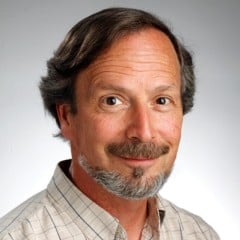“ Our goal is to take market share away from the green guys, the blue guys, the red guys…” — Martin Richenhagen
It’s clear we aren’t talking about yesterday’s AGCO. While in Atlanta for the launch of the world’s first all-AGCO tractors, global president and CEO Martin Richenhagen sat down with COUNTRY GUIDE to tell us where he’s taking AGCO, and why.
Joining him earlier as part of a media Q&A was Bob Crain, senior vice-president and general manager for North America. The two are key drivers in a business with massive financial resources, and an even-larger ambition to be number one.
Read Also

Farm machinery scores big in 2022
When I spent a summer working as a mechanic’s helper at an Allis Chalmers dealership in 1978 as one of…
Martin Richenhagen gets hired to build companies, not tractors. Yes, it’s true his bio includes senior positions at Claas, but his pedigree also lists mining, technology and even paints, where he’s still on the board of paint maker PPG.
Richenhagen was also hired because he knows who to talk to, and how to get their ear. When COUNTRY GUIDE sat down with him in February, he had just returned from meeting Vladimir Putin, Luiz Lula da Silva (president of Brazil) and a who’s who of the world’s political and corporate elite.
It’s why, when Richenhagen signed on with AGCO in 2004, he decided his first job was to change the company. That meant changing its corporate culture and giving it a clear sense of mission. To others, that might seem like mere words. To Richenhagen, it was nothing less than laying the foundation for all the company’s future successes.
“I want to empower people, to put the decision-making where the know-how is,” Richenhagen says. “We needed a culture where everyone is a leader.” That’s a huge turnaround. Like a lot of entrepreneurial startups, AGCO’s previous leadership style was all top-down, with the charismatic Robert Ratliff at the top.
Old-style management was holding the company back, especially in North America, Richenhagen says. “Top management tried too much to influence what is happening here.”
To create change, Richenhagen appointed Hubertus Muehlhaeuser of Arthur D. Little (the world’s oldest consulting firm) to the new post of senior vice-president of strategy and integration. Then Richenhagen formed a small, cross-functional team to quickly come up with vision, mission and value statements. Next, he started turning sceptics into believers by putting those statements into action. “In order to support strategy, you need strategic initiatives,” Richenhagen says. “We developed 80 different initiatives, and made sure they were implemented.”
Everyone in the company was affected. Doubters found themselves shunted aside and passed by, replaced by subordinates eager to show they could adapt. Every process was changed too, from accounting systems to the new six-point system to foster innovation in tractor design that led directly to this year’s tractor launch.
“When you start to trust, and when you start to delegate, you get people who are motivated and who deliver,” Richenhagen says. “Not only that, but the word spreads. You get a good image. That is good for the company. Today, we can hire anyone.”













